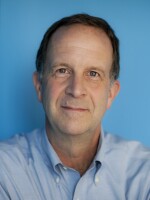What's it like to live with schizophrenia? What if I turned off my phone and spent an entire day completely offline? Can I use my campus physics lab to test the best tool for stirring coffee?
These are some of the questions students explored in the 2023 NPR College Podcast Challenge. We received more than 500 entries this year (a record!) that brought us personal stories of conflict or triumph; deep, thoughtful interviews; compelling local news coverage; and sound-rich investigative reporting.
And so here they are, presented below – our 10 finalists representing the best of college podcasting this year. Finalists from campuses big and small, and all over the country: the University of Wisconsin-Madison, Miami Dade College, Tennessee Tech ... and more. Some are from students studying journalism, others from public health, peace studies, or physics majors.
This year also brought an uptick in timely podcasts about issues important to college students: climate change, gender and identity, youth activism, and campus politics.
Some entries have scenes rich with original sound design and musical scoring. Others relied on strong writing and narration alone.
(A bit of advice here about music: Most students who made it to our honorable mention or finalist round used music or "scoring" to set the scene, to mark transitions that introduce a new scene or chapter, or to convey emotion. Many others underlaid music throughout their entire podcast – which, we're sorry to say, often is distracting for listeners. With smart "scoring," it's good to assume that less is more; treat each music and sound design like another character in your story!)
So, what makes these 10 podcasts stand out? Humor is a big factor (and it's harder to pull off than you'd think!) It goes without saying that an interesting topic or story helps. High production values count — and we've noticed marked improvements in this area every year. And yes, you need a clear narrative "arc," or journey.
But what really distinguished each of these finalists is the enthusiasm and care that student podcasters brought to their work, and the creativity they show us in telling their stories in compelling ways.
Here (in alphabetical order) are the finalist entries of the 2023 NPR College Podcast Challenge. Our judges will meet soon to select among them our Grand Prize Winner, and we'll announce that decision in late March. And we'll soon publish our list of honorable mentions as well.
Congratulations students! We hope to hear from you again next year.
All Good Things, Jack Ohly, the University of Wisconsin-Madison
This sound-rich podcast walks us through technologies of the past, present and future – and explains how they got us to where we are today, then ceased to exist.
Breaking from the Bible Belt, Meghan McKinney, Missouri State University
Breaking from the Bible Best follows the story of one college student who was raised in a conservative Christian household. McKinney captures what it's like to challenge your family's faith, and how that may forever change their relationship.
Dear Little Sister, Trinity Hunt, University of Delaware
In this moving podcast, Hunt shares letters and phone calls with her younger sister, who recently joined the military. It captures how this brought their family closer and how her sister's service changed Hunt's understanding of being American.
High Stakes Drilling, Macy Lipkin, Wellesley College
Reported from Ecuador, High Stakes Drilling follows how a 2023 vote challenging oil exploration in the Amazon, which has been heralded as a win for the environment, also threatens local people's jobs.
Midway Through, Ana Bassett, Miami Dade College
What's it like to return to college as a middle-aged woman? In this heartwarming entry, Bassett interviews her son and tells her story on why it's important for her to take on new challenges and keep growing in different, adult ways.
The Day I Ditched My Devices, Brandon Kondritz, Northwestern University
Imagine spending an entire day in college completely unplugged. Kondritz gave that a try and captured every bit of it on voice memos.
The Fluid Dynamics of Coffee, Robert Lakatosh, Tennessee Tech University
"Imagine how much more efficient your life could be if you knew exactly the fastest way to stir your coffee?" Robert Lakatosh admits in his podcast that his discovery may not change lives. Yet, he still goes all out and takes his curiosity to the physics lab.
The Monsters We Create, Michael Vargas Arango, Miami Dade College
This personal story follows the life of Vargas Arango, a college student with schizoaffective disorder. With sound design and interviews, he recreates what it's like to live with a mental health disorder, in hopes of removing the stigma around it.
Turning The Page, Beatrice Phillips, George Washington University
Through several interviews, including one with the American Library Association president, Phillips reports on who should have a say in what kids read, and the value of having students read books from diverse authors.
What Heaven Looks Like, Eliza Moore, Mercer University
What could a more inclusive church look like? Moore tells the story of one United Methodist church in Georgia, where members of the queer community are welcomed. She explores the value of acceptance in today's political and religious climate.
Congratulations again to all our finalists! The Grand Prize Winner will be announced in late March, and we'll also announce the Honorable Mention entries in the coming weeks.
Copyright 2024 NPR. To see more, visit https://www.npr.org.




